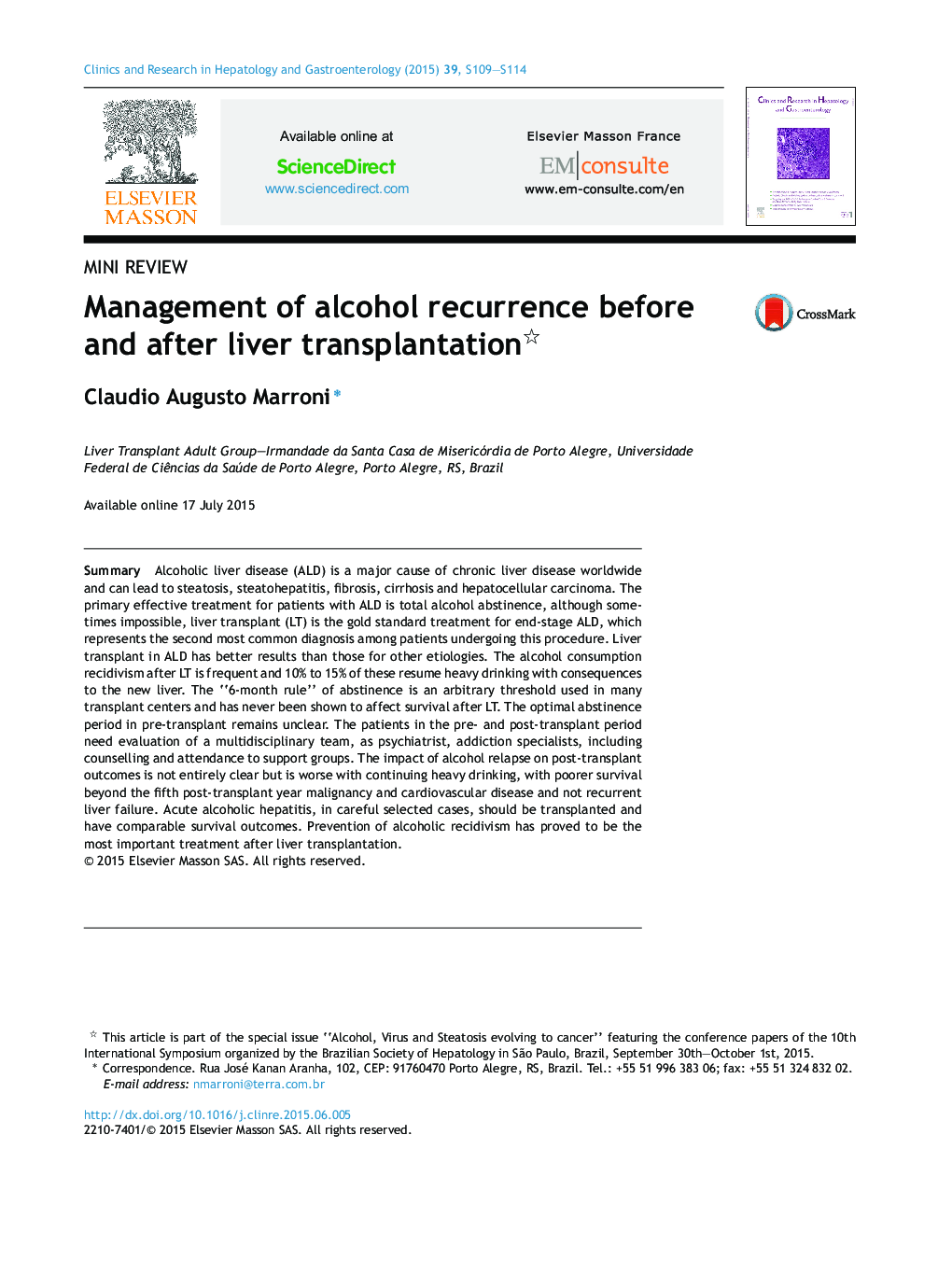| Article ID | Journal | Published Year | Pages | File Type |
|---|---|---|---|---|
| 3286395 | Clinics and Research in Hepatology and Gastroenterology | 2015 | 6 Pages |
SummaryAlcoholic liver disease (ALD) is a major cause of chronic liver disease worldwide and can lead to steatosis, steatohepatitis, fibrosis, cirrhosis and hepatocellular carcinoma. The primary effective treatment for patients with ALD is total alcohol abstinence, although sometimes impossible, liver transplant (LT) is the gold standard treatment for end-stage ALD, which represents the second most common diagnosis among patients undergoing this procedure. Liver transplant in ALD has better results than those for other etiologies. The alcohol consumption recidivism after LT is frequent and 10% to 15% of these resume heavy drinking with consequences to the new liver. The “6-month rule” of abstinence is an arbitrary threshold used in many transplant centers and has never been shown to affect survival after LT. The optimal abstinence period in pre-transplant remains unclear. The patients in the pre- and post-transplant period need evaluation of a multidisciplinary team, as psychiatrist, addiction specialists, including counselling and attendance to support groups. The impact of alcohol relapse on post-transplant outcomes is not entirely clear but is worse with continuing heavy drinking, with poorer survival beyond the fifth post-transplant year malignancy and cardiovascular disease and not recurrent liver failure. Acute alcoholic hepatitis, in careful selected cases, should be transplanted and have comparable survival outcomes. Prevention of alcoholic recidivism has proved to be the most important treatment after liver transplantation.
